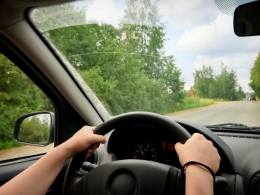
It’s a common occurrence - a child has just passed their driving test and has been bought a car by one of their parents. The car was purchased in the parent’s name so they decide to do the same for the car insurance, adding themselves as the main driver and their child as the ‘other driver’. Car insurance is so expensive for young drivers so this brings the costs down.
So, is this parent just a savvy shopper, bending the rules to get the best deal? Or are they committing an illegal act that could land them with a criminal record?
Many drivers may not know that it is the latter. It’s called fronting and it is a serious act of fraud.
What is fronting?
Action Fraud define fronting as “a type of car insurance fraud, when someone claims to be the main driver on a motor insurance policy when they are not”.
And it’s not uncommon. According to research by GoCompare.com, more than half of parents of young drivers have "fronted" or would consider "fronting" a car insurance policy, if its resulted in lower premiums. With around 1,000 cases each year, fronting is a one of the biggest problems faced by the motor insurance industry.
At Rural we’ve already seen a number of cases this year where we have had to decline claims or void policies as a result of fronting.
Common occurrences
Fronting most often occurs when young drivers are involved. Age is a key factor in determining the risk of a policy and therefore how much premium to charge. That’s because young drivers (particularly those who have just passed their driving test) are more likely to be involved in accidents and need to make a claim.
For insurers to determine the cost of cover they’ll ask for certain information about the main driver including their age, experience and profession. This is where fronting occurs as parents or more experienced drivers may name themselves, despite the fact it is a younger driver who uses the vehicle on a daily basis.
The example above is an obvious case of deliberate fronting, but sometimes fronting can occur by accident, particularly if cars are shared within your family. To determine who is the main driver, ask yourself:
- Who drives the car every day?
- Do they drive to a place of work or study?
If you’re still not sure you could talk to your insurance broker.
Know the consequences
Although it may seem tempting to save some money, the consequences of fronting in the event of a claim can be serious. If you’re found to be fronting, any of the following could occur:
- You may have all or part of your insurance claim refused by your insurer. And although the insurer has to pay the third party charges, they are within their rights to recover these costs from you.
- Your policy may be cancelled.
- You could face prosecution for fraud, which can lead to a criminal record.
Not only this but you may find it difficult to get car insurance again in the future. That’s why it’s important to think carefully about the information you provide when taking out motor insurance.
Honesty is the best policy
So when you’re asked who the registered keeper and main driver is on a vehicle, make sure you give a true picture of how this vehicle is used. Don’t be guilty of fronting. While it can save you money in the short term, the long-term risks outweigh the benefits.
It can be hard if you’re a business owner with multiple vehicles to remember who drives what so when your insurance is coming up for renewal, we recommend capturing an up to date schedule outlining the main driver for each of your vehicles to give to your broker or insurer.
Sources:
http://www.actionfraud.police.uk/fraud-az-fronting
https://www.moneysupermarket.com/car-insurance/articles/back-to-fronting/
http://www.tescobank.com/car-insurance/guides/what-is-fronting/
http://www.express.co.uk/life-style/cars/801721/car-insurance-fraud-fronting-premium
